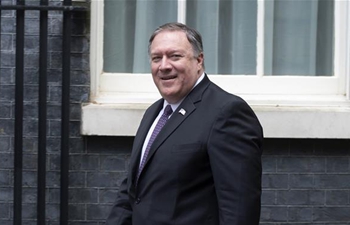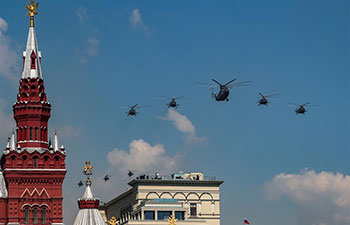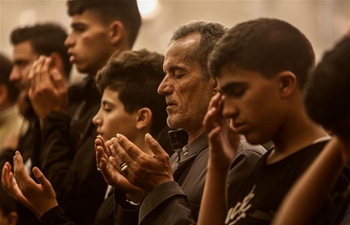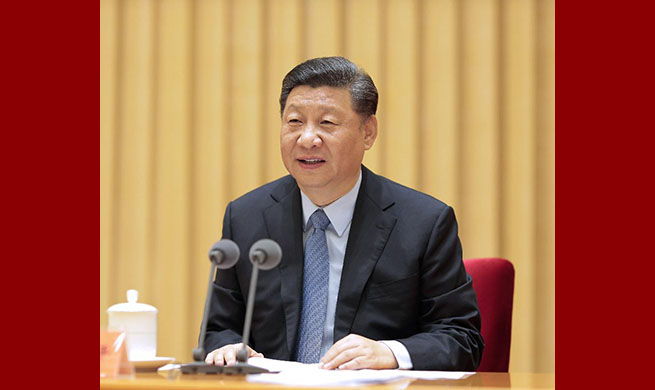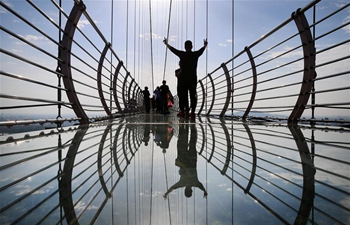HAVANA, May 8 (Xinhua) -- A few days after the activation by the U.S. government of an act to dash foreign investment in Cuba, international companies in the island country still plan to stay and expand their business.
Washington made the decision to activate the full weight of the Helms-Burton Act against Cuba last week, which authorizes U.S. nationals to file lawsuits over properties nationalized or confiscated by the Cuban government.
The Helms-Burton Act, which basically punishes U.S. and foreign companies that do business with Cuba, came into force in 1996, but most U.S. administrations did not apply Title III until recently.
"The embargo and the Helms-Burton Act don't worry me at all. I have been told that I am already on a list and the U.S. government will deny me permission to enter their country, but I can live perfectly without traveling there," Miguel Miralles, president of Spain's ROC Hotels told Xinhua.
The firm has three facilities in Cuba -- two in the resort town of Varadero and the emblematic Hotel Presidente in the capital, inaugurated in 1928 as the city's first skyscraper.
For Millares, the fact that the building in Havana can be subject to claims and lawsuits in the United States in accordance with the Act's provisions is not a cause for concern.
"I believe that Cuba is a unique tourism product in the Caribbean, and we want to expand our business here. We came to stay and no foreign law will make us leave," he said.
Diego De Conti, Cuba sales and marketing director at France's Accor Group, said the island is a very attractive destination for international visitors, particularly in Europe and Asia.
The Accor Group, with more than four decades of experience and around 4,500 hotels in almost 100 countries, has one beach resort in central Cuba and will start managing the country's third luxury hotel next September.
"We are promoting hotels, (and) we don't engage in political debates. However, I can assure that at least from the European market we are not perceiving any limitation, and we don't expect any problems with the new U.S. measures," he said.
The first lawsuits were already filed last week in Miami, home to thousands of Cuban exiles, against Carnival Cruise Lines for the use of port facilities in Havana and the eastern city of Santiago.
Another facility whose former owners and their descendants want to claim is Havana's Jose Marti International Airport. Every year, there are more than 50 international carriers here working to connect the island's capital with 36 destinations in the world.
Interjet, a Mexican airline, is one of the carriers operating for a decade which plans to expand its flights after the U.S. activation.
"We are the Mexican airline with the most operations at Havana's airport. We have up to 7 daily flights from different cities, and we see great prospects to add more connections in the future," Jimy Izaguirre, Interjet's commercial manager told Xinhua.
For Patricia Santana, product manager of Cuba Travel Services, the situation is complex as she operates an exclusive travel agency from the United States for two decades.
She said the company aspires to continue expanding services in the island abiding by regulations of the Office for Foreign Assets Control which belongs to the U.S. Department of Treasury.
"We have to wait for the new guidelines but it definitely scares the American citizens. Because if the government says you shouldn't travel to Cuba or there will be changes to the regulations ... it's a worrisome subject," Santana told Xinhua.
The United States has for decades banned its citizens from traveling to the island for tourism purposes. Currently, U.S. citizens can only travel to Cuba under 12 licenses that include educational, cultural and religious purposes, among others.
U.S.-Cuba relations have deteriorated since U.S. President Donald Trump took office and rolled back the detente initiated by his predecessor Barack Obama.

